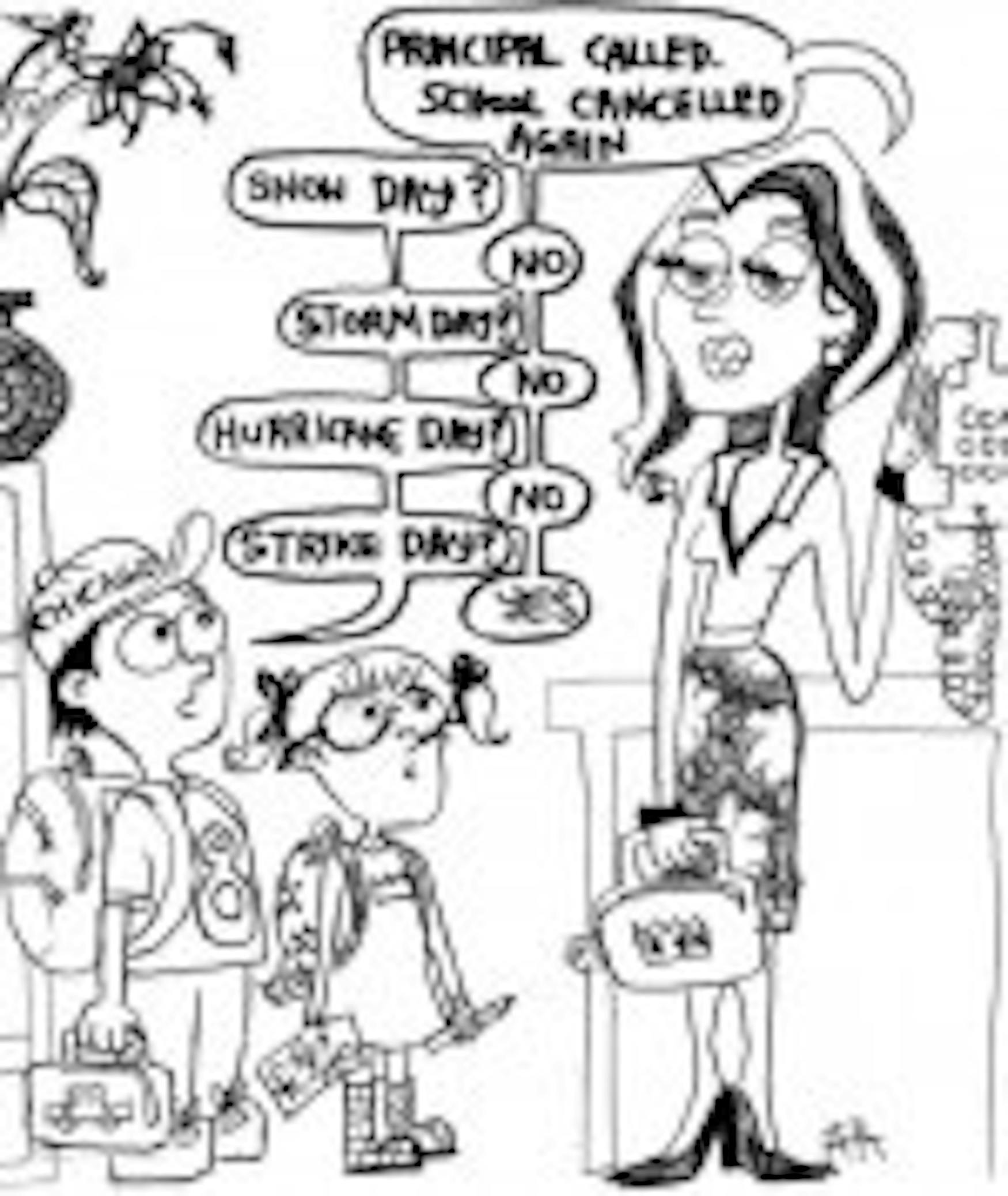Chicago's strike violates union principles
On Sept. 10 the Chicago Teachers Union went on strike to protest teachers' current pay, benefits and protections, as well as to bring attention to issues such as ballooning class sizes and cuts to funding for the arts and athletics.
Chicago Public Schools is the third-largest district in the United States, with over 400,000 students enrolled in its elementary, middle and high schools. The strike ended on Sept. 18.
Generally, I am in support of public sector workers striking for better benefits. While there are those who abuse the pension system, they are few and far between.
Our teachers, nurses, emergency responders and other government employees are often underpaid and used as political bargaining chips. Without strikes, often times public sector workers are not able to get what society owes them.
Therefore, I support what the teachers were striking for; public school teachers are grossly underpaid for their labor and the current evaluation system relies far too heavily on standardized test scores.
Teachers should have to teach for more than two or three years before getting offered tenure, and they should be reviewed every five years to make sure they are still doing a good job.
State governments shut down school buildings to save money, and, as a result, class sizes grow and good teachers are laid off while bad ones can remain in the system if they have tenure. For example, the Pittsburgh Post-Gazette reported this August that to save money this year, the Pittsburgh school district decided to lay off teachers and other staff members. These decisions were based on seniority, and not which teachers were the best.
Extracurricular programs are often cut, and Chicago Mayor Rahm Emanuel is trying to end free school breakfasts for low-income children.
However, while I support their cause, I did not support the Chicago Teachers Union strike.
The Chicago Teachers Union has expressed dissatisfaction with Mayor Emanuel and his plans to save the city money, including a plan for pay increases with limited layoffs. This proposal was one of the triggers for the strike. The union could have organized a strike at any other time, such as over the summer or during winter vacation.
The effect would also have been teachers refusing to teach and making an important statement about what is wrong with the current system.
Starting on Sept. 10, 400,000 students could not go to school because the schools could not run without the teachers, administrators and all the other individuals required to keep the schools functioning.
As an elementary school student, I'm sure I would have been thrilled if my school shut down for a week and I got to stay home, my parents less so.
For some families, shutting down the school for eight days may not have been a problem.
A stay-at-home parent or a relative or a family friend could watch the child. However, according to the 2010 census, 16.6 percent of families in Chicago live below the federal poverty line.
Moreover, the majority of those families are racial minorities, communities that have the lowest graduation rates in Chicago Public Schools, as reported by the Chicago Tribune in April 2006.
Those families, and thousands of others where both parents have to work, may not have exhaustive child-care options. These families, and their children, are the ones being hurt most by the strike.
The Chicago Teachers Unions strike lowered my own opinion of public sector unions. I've been a staunch supporter of unions since Scott Walker and the state legislature of Wisconsin passed what I thought to be incredibly harsh measures to prevent most public sector unions from collectively bargaining to raise wages and benefits two years ago.
I am disappointed in the Chicago Teachers Union for how they decided to strike, but, for the most part, I agree with how unions use strikes. At the same time, I can easily imagine how someone who is on the fence about public sector unions now could oppose them after the strike.
The Chicago Teachers Union strike was founded on noble ideas that I, and hopefully many others, agree with, but the way they carried out the strike with disregard for the students and their families was not the right choice.
If the union is going to put its own interests, no matter how noble, before the interests of those whom its members are supposed to be educating, is it doing its job? I argue no, but the choice is up to you.



Please note All comments are eligible for publication in The Justice.